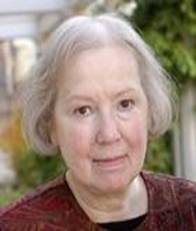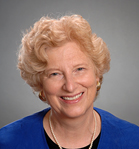
THE VOICE OF INTERNATIONAL LITHUANIA
|
VilNews has its own Google archive! Type a word in the above search box to find any article.
You can also follow us on Facebook. We have two different pages. Click to open and join.
|
While we shelled beans with him
an interview of Myra Sklarew
by Ellen Cassedy

Myra Sklarew is the author of numerous books of poetry, including The Witness Trees, a powerful account of how she forged – and is still forging – a connection to her Jewish heritage in Lithuania. VilNews correspondent Ellen Cassedy spoke with Sklarew in Washington, D.C.
Myra, you have visited Lithuania twelve times in 18 years. What first drew you to the land of your ancestors?
In 1993, it occurred to me that with the end of the Soviet occupation, I could walk freely. I went with no knowledge. I didn’t know a soul and didn’t know the language. I just started walking.

Let’s listen to how you put it in The Witness Trees, your book-length poem with a Yiddish translation by the noted late Yiddish poet David Wolpe (a member of your Lithuanian Jewish family who immigrated to South Africa):
I wanted to go there
by feel, to see if Lithuania would tell me
its secrets, to see if I would
recognize myself in Lithuania, to marry the myth
of who I am with the myth of place. To find more
than the signs of the dead. To find evidence
of the lives of those I have come from.
Your family lived in the Kedainiai region?
Yes – in the town of Kedainiai itself, and also in 15 different villages, including tiny hamlets that are not even on the map. I was most curious about these little villages.
In Datnuva, where my family was once more than half the town, an elderly woman called out to me – she cried out – as we drove in. She looked very intently at my face and told me I looked exactly like someone she once knew. It turned out she’d known my whole family. I visited with her every year and took my granddaughter to meet her and her family.
Do you have advice for others who are considering a visit?
The most important things happen by happenstance, by walking. Save time to walk in the villages your family came from. Take chances, take risks. Don’t be afraid to talk to elderly people on the street. Remarkable guides and friends have made this possible for me.
Once on a very cold day in October, my guide and I came upon an elderly man shelling dried beans to store for winter. We sat down beside him, and while we shelled beans with him we asked – “How do you feel about Jewish people? What happened when the Jews were taken away? What did your children make of it?”
September 25, you plan to go to Kedainiai to attend a commemorative event at the site where more than two thousand Jews were shot in the summer of 1941 – including dozens of your own family members. New plaques will be unveiled, listing names of the victims. Why do you want to be there?
If you want to love where you come from, you can’t omit the sorrow. I never cease to discover things in Lithuania. There are lessons I am still learning about the cruelty we’re all capable of, and lessons about other ways of behaving. I always try to visit people who rescued Jews during the Holocaust, to figure out how they had the courage.
I’m particularly touched that not only Jewish descendants but the people of Kedainiai today, especially the Kedainiai Regional Museum, will bring this new memorial into being.
These lines from The Witness Trees (Dora Teitelboim Center for Yiddish Culture/Cornwall Books: 2000) speak eloquently about what you’ve found in Lithuania – and why you will continue to go back. Thank you for sharing your story with us.
Here in America, if you rise early enough, in the dark,
if you go out of doors, you can smell autumn
though it is still August. Here and there, leaves are beginning
to fall, a few under the dogwood tree, oak leaves, poplar. And just
after dusk, when the earth passes through the dust stream of old
comets, if you look up you will see
meteor showers, the Perseids. Are these burning songs
striking at our atmosphere, like the hearts
of those who met their deaths untimely in Lithuania?
I tell you, once we have found our dead, though we cannot hear their
answering voices among the sounds of this world, we will tear
open the skin of the earth
to admit them. We will not lose them again.

Ellen Cassedy traces her Jewish family roots to Rokiskis and Siauliai. Her book, We Are Here: Memories of the Lithuanian Holocaust, will be published in March of 2012. She lives in Washington, D.C. Visit her website at www.ellencassedy.com.
- Bookmark :
- Digg
- del.icio.us
- Stumbleupon
- Redit it
VilNews e-magazine is published in Vilnius, Lithuania. Editor-in-Chief: Mr. Aage Myhre. Inquires to the editors: editor@VilNews.com.
Code of Ethics: See Section 2 – about VilNews. VilNews is not responsible for content on external links/web pages.
HOW TO ADVERTISE IN VILNEWS.
All content is copyrighted © 2011. UAB ‘VilNews’.

 Click on the buttons to open and read each of VilNews' 18 sub-sections
Click on the buttons to open and read each of VilNews' 18 sub-sections 



[…] Read more… Category : Featured / Front page […]